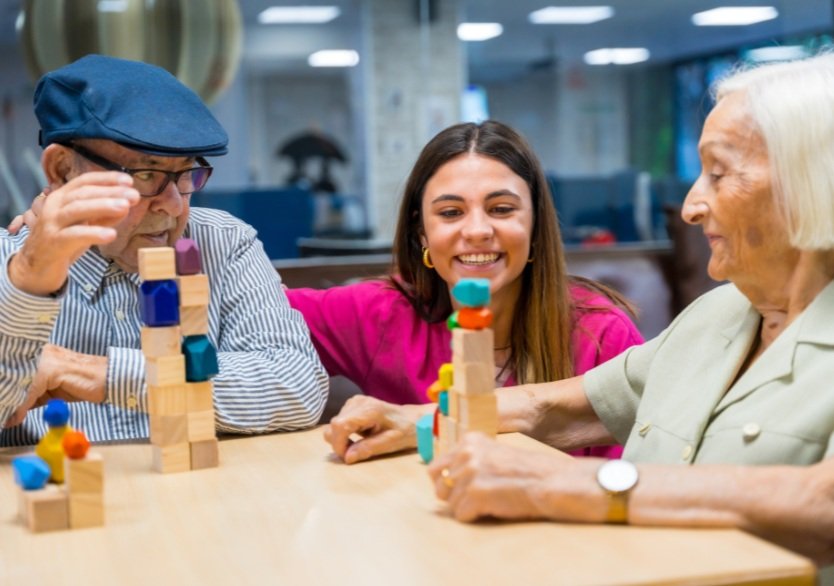Top Tips for Talking With Someone With Aphasia
When someone you know has aphasia, communicating with them may seem challenging. Aphasia affects a person's ability to speak, understand speech, read, or write. It's often caused by brain damage, such as from a stroke or traumatic brain injury. While aphasia can make communication difficult, there are ways to help. Here are some tips to make conversations easier and more enjoyable.
What Is Aphasia?
Aphasia is a language disorder that occurs when the areas of the brain responsible for language are damaged. The causes can vary, with strokes being the most common, but it can also result from head injuries, brain tumors, or certain neurological conditions.
People with aphasia may struggle to express themselves, understand others, or both. There are different types of aphasia, including:
Expressive aphasia (difficulty speaking)
Receptive aphasia (difficulty understanding)
Global aphasia (a combination of both)
Despite these challenges, it's crucial to remember that aphasia does not affect a person's intelligence or cognition.
Understanding the Challenges
People with aphasia often struggle with the basic aspects of communication. They might have trouble finding the right words, understanding spoken language, or reading and writing. Despite these difficulties, most individuals with aphasia retain their cognitive abilities. The key to effective communication is understanding their unique challenges and adjusting your communication style accordingly.
How to Communicate Effectively With Someone With Aphasia
Talking with someone with aphasia requires patience and understanding. Here are some tips to help you communicate more effectively:
1. Speak Slowly and Clearly
When speaking with someone with aphasia, it's crucial to slow down and speak clearly. Use simple language and shorter sentences to avoid overwhelming them. Pronounce words distinctly, and don't rush through your conversation. By speaking slowly, you give them time to process what you're saying.
2. Give Time to Respond
Patience is essential when communicating with someone with aphasia. Give them extra time to respond, and avoid interrupting or finishing their sentences. Remember, they might need a moment to find the right words or formulate a response. Respect their pace, and don't rush them.
3. Use Non-Verbal Cues
Non-verbal cues can be incredibly helpful when talking to someone with aphasia. Gestures, facial expressions, and body language can support verbal communication and provide additional context. You can also use visual aids like pictures or written words to help convey your message.
4. Ask Yes or No Questions
One way to make it easier for someone with aphasia to respond is to ask questions that require a simple "yes" or "no" answer. This approach helps avoid complex responses and can make communication smoother. Try to avoid open-ended questions that require more extensive explanations.
5. Provide Context
Providing context can help someone with aphasia understand the topic of conversation. Before diving into the details, give an overview or summary to set the stage. This approach can make it easier for them to follow along and engage in the conversation.
Supporting the Person With Aphasia
Effective communication with someone who has aphasia goes beyond words. It's about creating a supportive and empathetic environment. Maintain eye contact, use a friendly tone, and be encouraging throughout your interactions. You can build a positive atmosphere that makes communication easier by showing patience and understanding.
Additionally, engaging in activities that the person enjoys can boost their confidence and provide opportunities for meaningful interaction. It's also helpful to seek guidance from speech therapists or support groups to learn more about effective communication strategies and additional resources.
Conclusion
Talking with someone with aphasia can be challenging, but with the right approach, you can make communication more manageable. You can improve the quality of your conversations by speaking slowly, giving them time to respond, using non-verbal cues, asking yes or no questions, and providing context.
“ It’s so important to give people time to communicate. Allow silence. Keep your posture relaxed and let them know they can take their time.” adds Melissa Beck, MS CCC-SLP
Remember to be supportive and empathetic. A positive attitude can go a long way in helping someone with aphasia feel valued and understood. If you need additional guidance, don't hesitate to reach out to professionals or support groups
If you need information about senior living communities in the Richmond area or want to explore housing options that better meet your loved one's needs, Benchmark Senior Solutions can help.
We offer free senior housing advisory services for older adults in Central VA. That means we use our knowledge and expertise to help your loved one find the perfect place to call home based on their medical needs, budget, and lifestyle.
From assisted living and memory care to skilled nursing and independent communities, Benchmark is Richmond's trusted source for senior placement services. Contact us today to get started!


